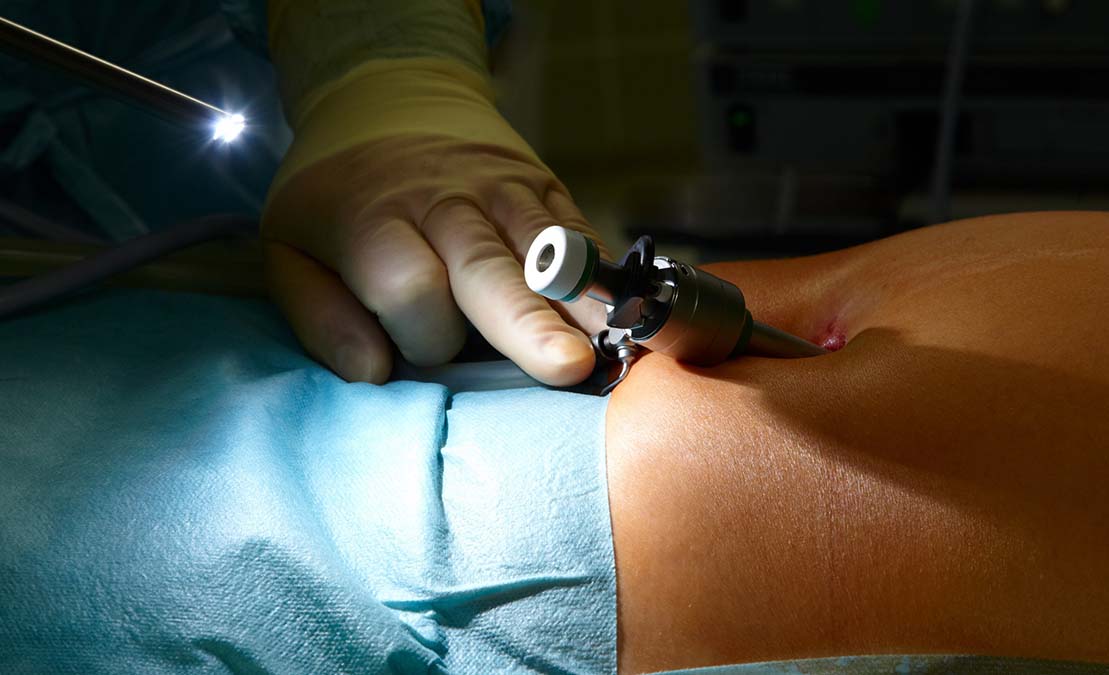Laparoscopy is a surgical diagnostic & removal procedure, also known as diagnostic laparoscopy. It is a minimally invasive procedure without the need of large incisions.
The surgeon uses a small tube called Laparoscope. This Laparoscope has a high-intensity light and a camera at the front.
The camera sends images to a video monitor as it moves around inside of the pelvis or abdomen.
Why should you get laparoscopic surgery:
No pain during the surgery.
Less pain, bleeding after the operation.
Key-hole scars. No big cuts or permanent scars.
Fast recovery time after the opration.
Shorter hospital stay
It is a low-risk procedure

When should you get laparoscopic surgery:
When other techniques like ultrasound, CT scan or MRI scan are failed to provide enough information or unable to help with the diagnosis. The Laparoscope can help diagnose complicated abdomen or pelvis conditions and can remove a diseased or damaged organ.
Laparoscopy is commonly used in:
Gynaecology
Gastroenterology
Urology
What are the Risks
Laparoscopy is much safer than traditional open surgeries. The risks are less to none as it only makes key-hole scars and only works on the diseased or damaged organ without disturbing other already-functioning organs which dicreases the chances of damaging other organs.
Small complications are estimated to occur in 1 out of 150 cases following laparoscopic surgery. Such as:
Infection or minor bleeding around the incision.
Vomiting
Fever or chills
There is a small risk of damage to an organ, such as your bowel or bladder.
However, these are rare occurrences.
Why Pasha Hospital
Pasha Hospital uses state-of-the-art equipment, qualified and renowned doctors with experiences ranging from 10-20 years in serving patients.
Pasha Hospital uses state-of-the-art equipment, qualified and renowned doctors with experiences ranging from 10-20 years in serving patients.


